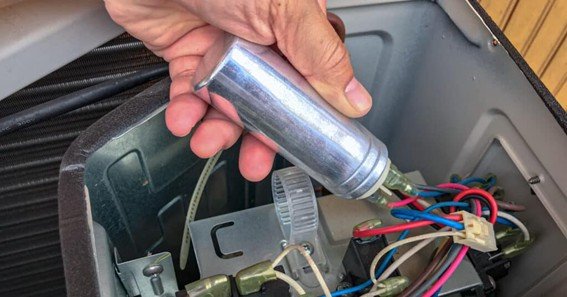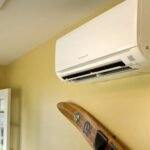When your air conditioning system malfunctions, one common culprit is a faulty capacitor. Understanding the AC capacitor cost and the factors influencing it can help homeowners make informed decisions about repairs.
What is an AC Capacitor?
An AC capacitor is a vital component in your air conditioning system, storing and releasing electrical energy to power the compressor, fan motor, and blower motor. Without a functioning capacitor, your AC unit may struggle to start or fail to operate altogether.
Average Cost of AC Capacitor Replacement
The cost to replace an AC capacitor varies based on several factors, including the type of capacitor, labor rates, and location. On average, homeowners can expect to pay between $100 and $400 for a professional replacement. The capacitor itself typically costs between $30 and $80, while labor fees range from $60 to $250.
Factors Influencing Replacement Costs
Several elements can impact the overall cost of replacing an AC capacitor:
-
Type of Capacitor: Different capacitors, such as run capacitors, start capacitors, and dual-run capacitors, vary in price. For instance, dual-run capacitors, which serve both the compressor and fan motor, may cost more than single-function capacitors.
-
Labor Charges: HVAC professionals’ labor rates can vary significantly based on experience, demand, and regional pricing. Some technicians may charge a flat rate that includes both the part and labor, while others bill separately.
-
Emergency Services: Requesting repairs during peak seasons or outside regular business hours can result in higher labor fees.
DIY vs. Professional Replacement
While the capacitor itself is relatively inexpensive, replacing it involves handling high-voltage components, posing safety risks. Professional HVAC technicians have the training to perform the replacement safely and ensure the correct capacitor is installed, preserving your system’s warranty. Attempting a DIY replacement without proper knowledge can lead to injury or further damage to the system.
Tips to Manage Replacement Costs
-
Regular Maintenance: Scheduling annual HVAC maintenance can help identify potential issues early, potentially extending the lifespan of components like capacitors.
-
Obtain Multiple Quotes: Consulting several HVAC professionals can provide a range of estimates, helping you find a fair price for the replacement.
-
Warranty Check: Review your AC unit’s warranty; some manufacturers cover capacitor replacements within a certain timeframe.
FAQs
1. What are the signs of a failing AC capacitor?
Common indicators include your AC unit not starting, emitting humming noises, or experiencing intermittent operation.
2. How long does an AC capacitor typically last?
With proper maintenance, most capacitors last between 10 to 15 years.
3. Can I replace an AC capacitor myself?
Due to the high-voltage nature of capacitors, it’s recommended to hire a professional to ensure safety and proper installation.
4. Are capacitor failures preventable?
Regular maintenance can help identify early signs of capacitor wear, allowing for proactive replacement before complete failure.
5. Does homeowner’s insurance cover AC capacitor replacement?
Typically, standard homeowner’s insurance policies do not cover wear-and-tear repairs like capacitor replacements.
Understanding the costs and considerations associated with AC capacitor replacement can help homeowners navigate repairs more effectively, ensuring their cooling systems operate efficiently.










